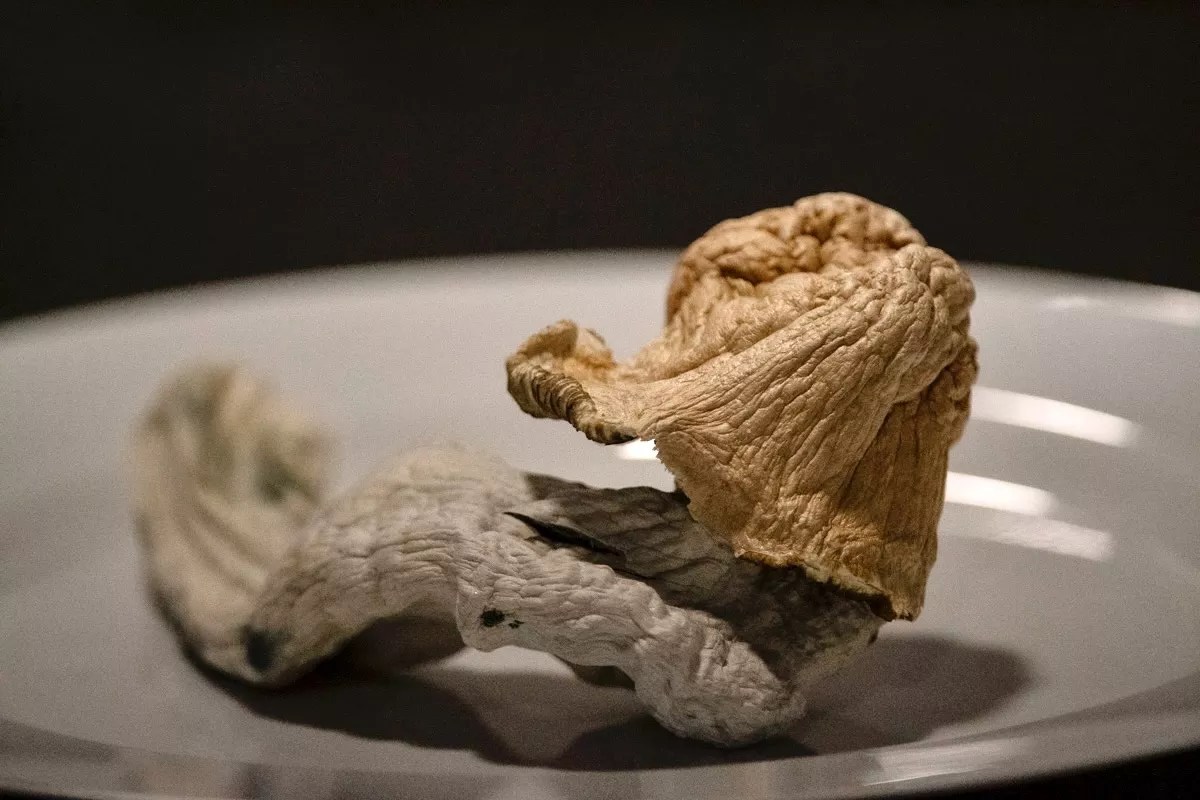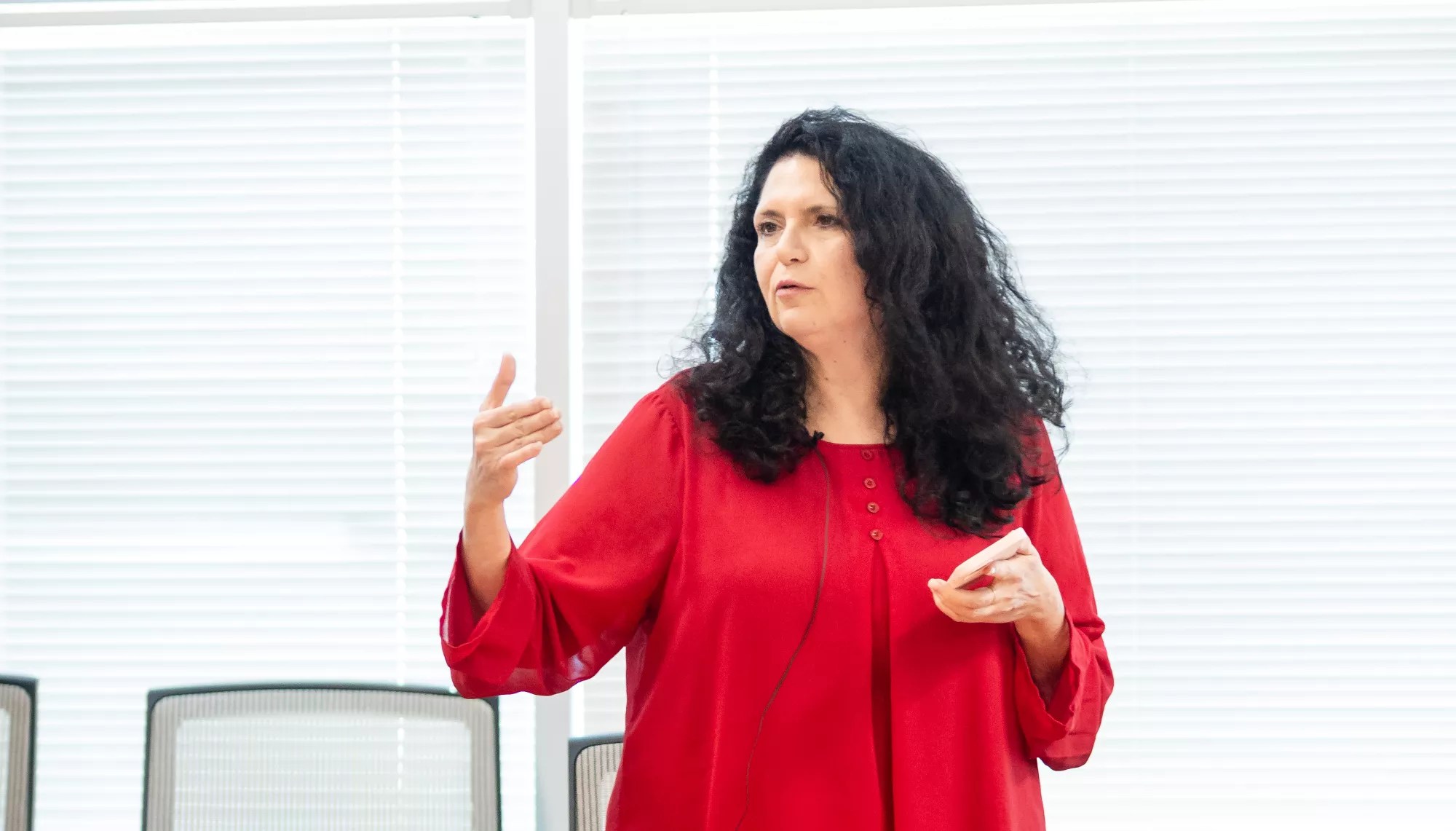
Evan Semón

Audio By Carbonatix
Arizona’s first-in-the-nation clinical trial of magic mushrooms is one step closer to becoming a reality.
Last week, the U.S. Food and Drug Administration released a hold on a clinical trial being run by the Scottsdale Research Institute, clearing a major hurdle for the organization to study the effects of whole magic mushrooms on humans.
Dr. Sue Sisley, the president and principal investigator at the Scottsdale lab, announced the big news Tuesday at a sparsely attended meeting of the Psilocybin Research Advisory Council, which is part of the Arizona Department of Health Services. The council – which consists of researchers, health department employees, a military veteran and a law enforcement officer – was created to disperse the $5 million in funding the Arizona Legislature allocated for studying magic mushrooms in 2023.
SRI’s study will be funded by a portion of that money. If it clears the remaining regulatory checkpoints, it will be the first trial on the planet to test natural mushrooms rather than isolated psilocybin molecules as treatments for patients with PTSD, chronic pain and opioid addiction.
There are several more steps to complete to get the study off the ground. But Sisley, who has been advocating for scientific research of Schedule I substances for decades, said getting off clinical hold is the hardest step in the process.
“It’s a huge milestone,” she told Phoenix New Times. “It says that we’ve reached all the criteria they had for standardizing natural mushrooms and guaranteeing the purity, potency and stability.”
Studying the effect of the whole mushroom is what makes SRI’s study unique, and what makes it trickier to organize. Mushrooms are more complex than just the psilocybin molecule and contain a mix of alkaloids and tryptamines that “work together synergistically” to exert effects on a person.
“When you extract one molecule out of the mushroom, you’re taking out some of the intelligence, but you’re leaving all the wisdom behind,” Sisley. “That’s what we believe and are hoping to prove in this study – but we’ll see what the data shows.”
Guaranteeing the mushroom dosages are standardized was a particularly challenging and costly process for Sisley’s team. She told the council that the lab invested in industrial-level technology to ensure homogeneity in the mushroom chocolates planned for use in the trial. SRI also grows its own mushrooms after it obtained the first-ever manufacturing license for psilocybin mushrooms from the U.S. Drug Enforcement Agency four years ago.
After 14 mushroom grow cycles and 40 official tests on their mushrooms, Sisley said the team has decided on one strain to use in its trials. When asked the name of the chosen strain, Sisley’s answer generated raucous laughter.
“It’s called Jedi Mind Fuck.”

Sue Sisley, the president of the Scottsdale Research Institute, said clearing a hold by the Food and Drug Administration is “a huge milestone” for the organization’s planned clinical trial of psilocybin mushrooms.
Courtesy of Andrew Neugebauer
How the study will work
Arizona nearly skipped studying mushrooms and went straight to limited legalization. Last year, Gov. Katie Hobbs vetoed a bill that passed with major bipartisan support that would have created a licensing system in Arizona for clinics using magic mushrooms to treat patients.
“Although psilocybin may be a promising treatment in the future, we do not yet have the evidence needed to support widespread clinical expansion,” Hobbs wrote in her veto letter.
Sisley thinks the governor made the right move.
“I know a lot of people criticized her for that, but in this case, it made sense to let the science lead the way,” she said. While states such as Oregon and Washington have made strides in creating licensed markets for mushrooms, Sisley noted that they have neglected data collection.
“Nobody will have data like here in Arizona,” Sisley said. “If we ever want to have a regulated market here in the future, we should start by doing the science first. It would be pretty bold to approve a regulated market for natural mushrooms when we have no research on natural mushrooms.”
The study will feature 24 participants who will receive one of three different doses of mushrooms. Tuesday’s council meeting brought a new wrinkle – literally. At Sisley’s side was a 6-month-old goldendoodle named DJ, who is training to be a therapy dog for the trial. SRI wants to dial back interactions with humans and train the dog to use its intuitive nature to comfort people or give reassurance.
“Our organization has been studying the problems of patient safety in psychedelic research for many years now,” Sisley said. “There have been huge transgressions in people who are taking care of people who under the influence of the medicine in altered states. There have been therapists who have actually sexually abused patients who trusted them.”
Music will also play a critical role in the study, Sisley said. SRI will give subjects headphones to listen to a curated playlist of music to help them go inward on their journey. The institute will also create a national patient registry that collects real-world experiences from both regulated markets in Oregon and Colorado, as well as experiences in the “underground.”
Before the trial can begin, SRI will need to submit a final proposal to the FDA. Then the lab will need to get the green light from the Institutional Review Board, an independent ethics board, before getting a final stamp of approval from the DEA.
Whenever that happens, Arizona will be at the forefront of psychedelic research, which for Sisley will be a particularly interesting position. In 2014, she was effectively fired by the University of Arizona for her research on cannabis, though that wasn’t the school’s purported reason for letting her go.
“The universities, back then at least, were running scared from all this kind of work,” she said.
While her team nearly lost a $2.5 million grant to study cannabis at the time, they completed the study as a nonprofit. For Sisley, a fairly direct line can be drawn from that point to this one.
“That firing is the best thing that ever happened to us. Imagine if I were still at the university being jerked around,” Sisley said. “So we’re really grateful. We feel like we owe them a gift basket or something.”